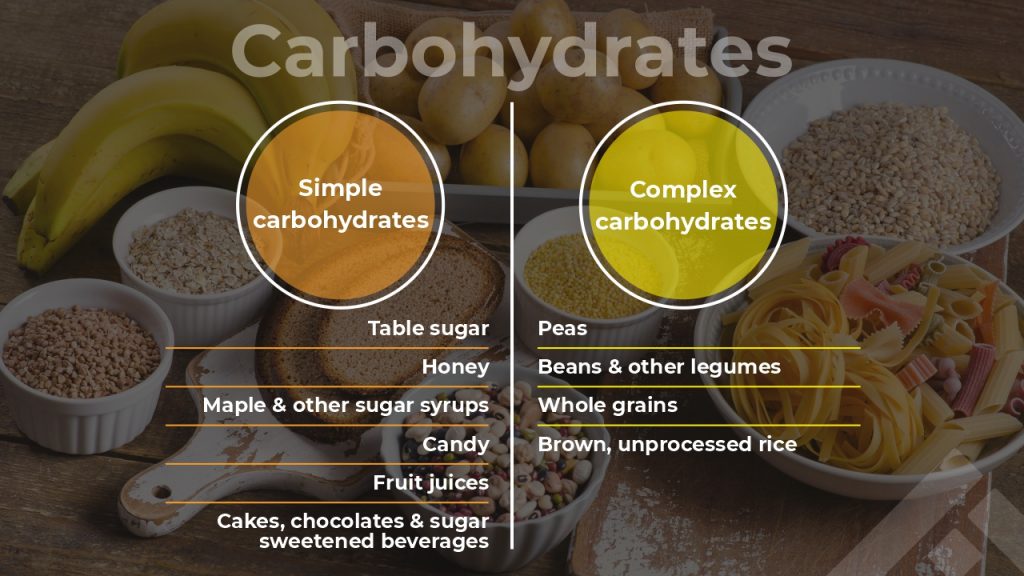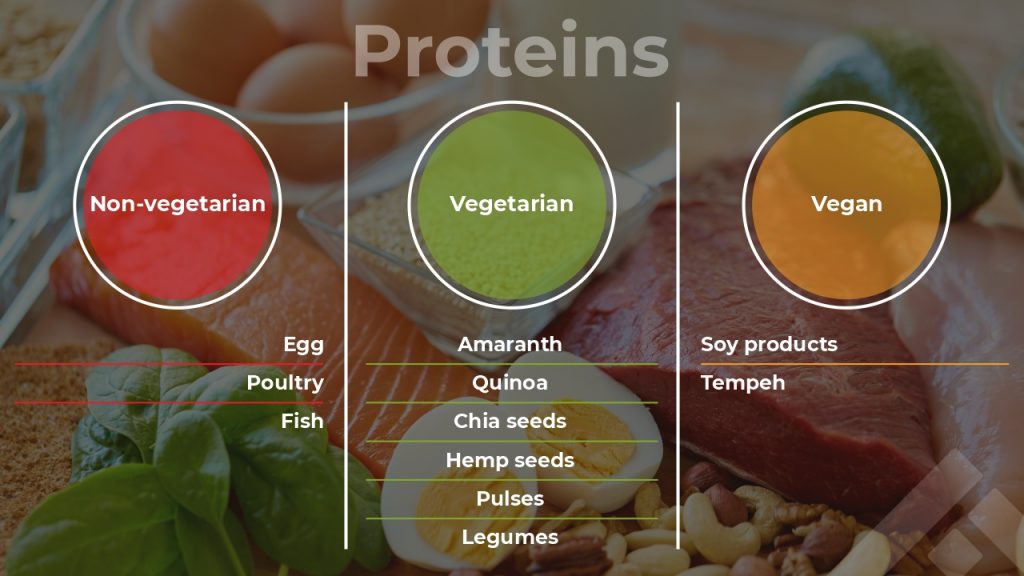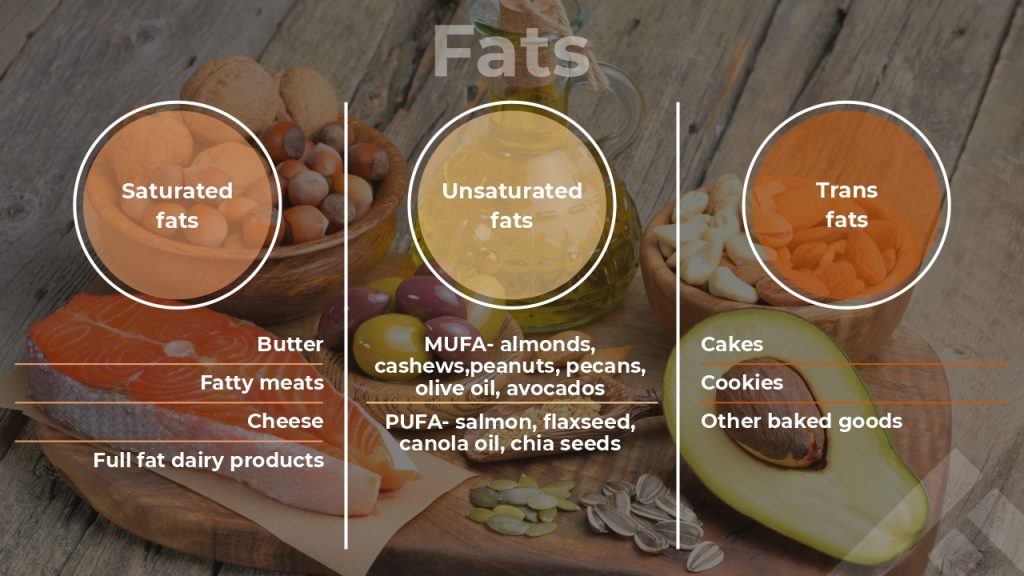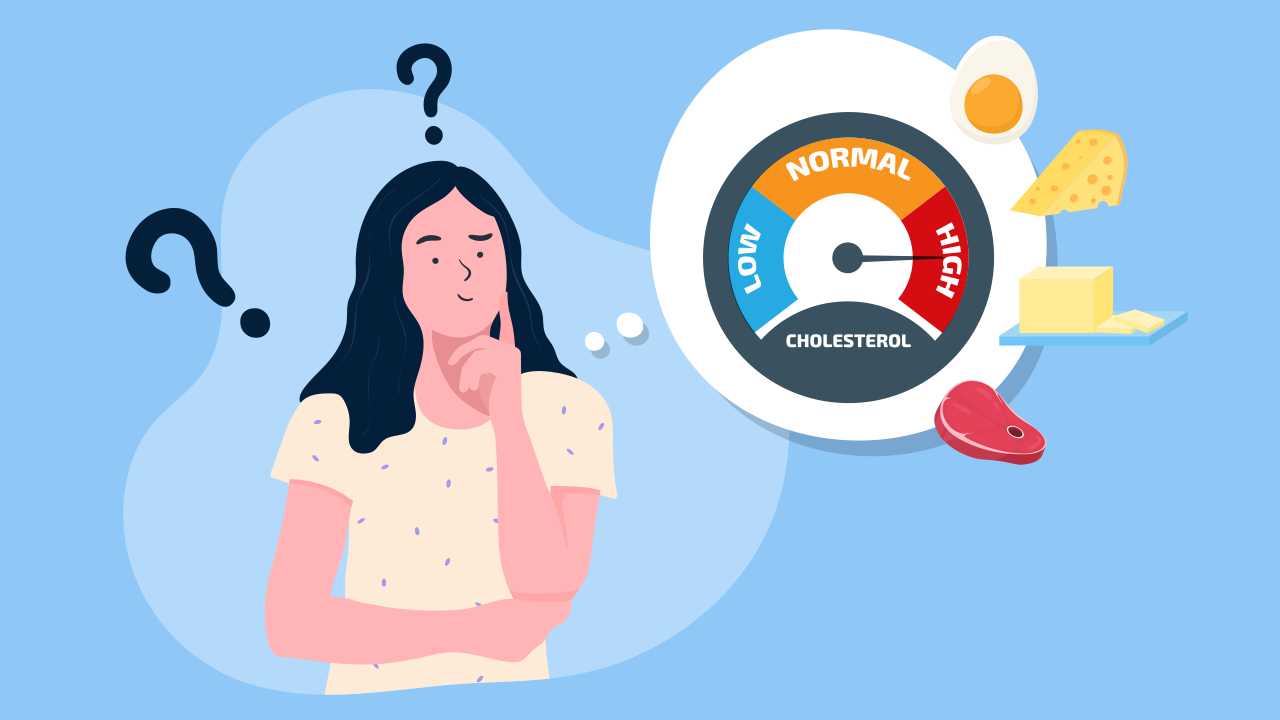
Macronutrients: What Are They? Why Do You Need Them?

Food powers the engine of your health. A nutritious diet boosts immunity, protects the body against inflammation and oxidative stress, and also safeguards against chronic health conditions. It’s therefore very important to understand the different types of nutrients present in foods and their impact on the body. A good place to start is by turning the spotlight on macronutrients.
What are macronutrients?
Macronutrients are a group of essential nutrients that your body needs for various functions. Carbohydrates, protein, and fats are classified as macronutrients since they are required in large amounts by the body.
Macronutrients provide calories or energy to meet the body’s daily needs. Each of the three macronutrients affects your body differently and have a different role to play.
Carbohydrates
It’s the body’s favorite fuel source, which includes starches, sugars, and fibers. When you consume something rich in carbs, your body converts it into sugars that enter the bloodstream. This sugar, available in the form of glucose, is what your body uses as an immediate source of energy. An adult needs to consume 45% to 65% carbohydrates of their total caloric intake daily.
Also read: Carbohydrates: Why and How Much Should You Eat
Carbohydrates can be classified into simple and complex. What differentiates one from the other is their chemical structure and how quickly they are digested and absorbed into the body.
Simple carbohydrates, thanks to their uncomplicated chemical structure, are quickly digested and utilized by the body for energy. This leads to a faster rise in blood sugar levels, which can lead to type 2 diabetes.
Complex carbohydrates, on the other hand, have a more complex chemical structure and are rich in fiber, vitamins, and minerals. They take longer for your body to digest, and have less of an immediate effect on the blood sugar, causing it to rise slowly. They also keep you fuller for longer.

Protein
Proteins are made up of amino acids, which are the building blocks of life. Unlike carbohydrates, they are not a direct source of energy, but are responsible for the growth and maintenance of tissues, and speeding up metabolism — a continuous process that goes on in your body for the organs to function normally. They also constitute bodily structures like skin, hair, connective tissues, and muscle fibers.
Several studies suggest that an adequate protein intake helps you feel full as proteins reduce the levels of the hunger hormone ghrelin, which in turn reduces the appetite
With a reduced appetite, lesser calories are consumed and the body is in a state of calorie deficit. This leads to weight loss. Optimal protein intake also leads to increased muscle mass, improves body strength, and promotes bone health. According to dietary guidelines, protein needs to comprise 10% to 35% of your total daily caloric intake.

Fats
Often classified as the “bad” food of the diet world, this macronutrient is an essential fuel source for the body. They are vital for various functions, such as promoting proper cell growth, protecting organs by forming a cushion around them, and keeping you warm by releasing energy as heat. Fats provide more energy (9 calories per 1g) than carbohydrates or proteins (4 calories per 1g). 20% to 35% of your total daily caloric intake needs to come from good quality fat sources.
Fats can be classified as saturated and unsaturated.
Saturated fats: They are known as “bad fats”. When consumed in excess, saturated fats are responsible for obesity and chronic diseases like cardiovascular ailments, diabetes, and other lifestyle disorders.
Unsaturated fats: This category includes monounsaturated fats (MUFA) and polyunsaturated fats (PUFA), which are healthy additions to the diet.
Trans fats: These are a form of unsaturated fats, which when consumed, leads to a significant increase in bad (LDL) cholesterol that increases the risk of heart disease.

Also read: What are micronutrients?
What if you have too much or too little?
All these nutrients are required by the body in specific amounts. Over or under-consumption can lead to health problems and deficiencies. To summarize, the calories from your total daily nutrient intake should be in the following proportions of macronutrients:
- 45% to 65% carbohydrates
- 10% to 35% protein
- 20% to 35% fats
Overloading on any of these macronutrients leads to an excess of calories, therefore resulting in weight gain. Similarly, if consumed inadequately, it can lead to fatigue, loss of muscle, and hormonal imbalance. The key is to plan your meal with a balance of three nutrients.
References
1. Datta N, Pal M, Roy U, et al. World Journal of Pharmaceutical Research. Infection 2014; 13: 15.
2. Alfenas RCG, Mattes RD. Effect of Fat Sources on Satiety. Obes Res 2003; 11: 183–7.
3. Solon-Biet SM, Mitchell SJ, de Cabo R, et al. Macronutrients and caloric intake in health and longevity. J Endocrinol 2015; 226: R17–28.
4. Carreiro AL, Dhillon J, Gordon S, et al. The Macronutrients, Appetite, and Energy Intake. Annu Rev Nutr 2016; 36: 73–103.













